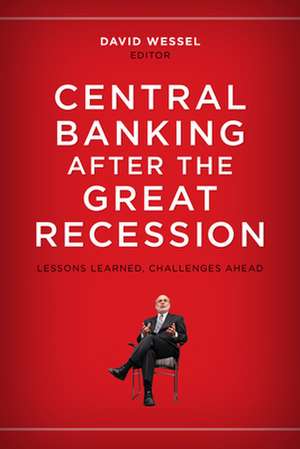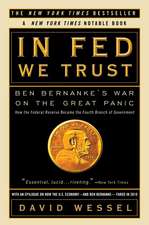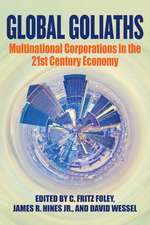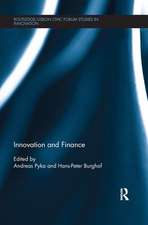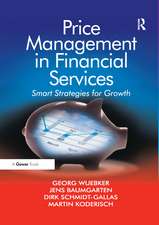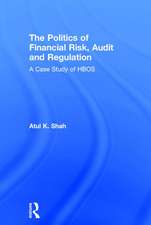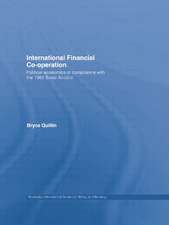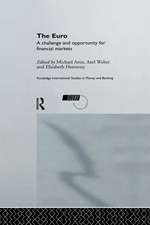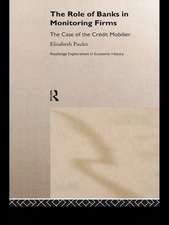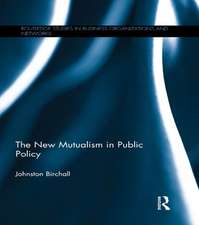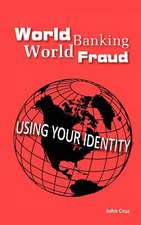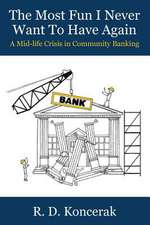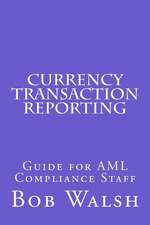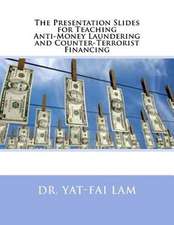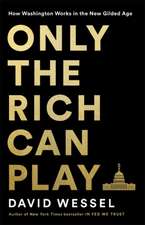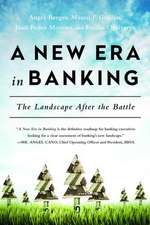Central Banking after the Great Recession: Lessons Learned, Challenges Ahead
Editat de David Wesselen Limba Engleză Paperback – 28 apr 2014
The global financial crisis is largely behind us, but the challenges it poses to the future stability of the world's economic system affects everyone from American families to Main Street businesses to Wall Street financial powerhouses. It has provoked controversy over the best way to reduce the risk of a repeat of what proved to be the worst financial crisis since the Great Depression. To describe those challenges—and the lessons learned—the Hutchins Center on Fiscal and Monetary Policy at Brookings turned to frontline policymakers and some of their most prominent critics. Central Banking after the Great Recession contains the resulting research, leading off with a telling interview between Ben Bernanke, then in his final weeks as Federal Reserve chairman, and Liaquat Ahamed, author of the Pulitzer Prize–winning Lords of Finance. Insightful chapters by John Williams of the San Francisco Federal Reserve Bank, Paul Tucker of Harvard University, and Donald Kohn of Brookings discuss unconventional monetary policy, financial regulation, the impact of the crisis on the independence of the Federal Reserve. Each chapter is followed by a lively debate.
Contents
1. Introduction
2. A Conversation with Ben Bernanke
3. Monetary Policy When Rates Hit Zero: Putting Theory into Practice
4. Regulatory Reform: What'a Done? What Isn't?
5. Federal Reserve Independence after the Financial Crisis: Should We Be Worried?
Contents
1. Introduction
2. A Conversation with Ben Bernanke
3. Monetary Policy When Rates Hit Zero: Putting Theory into Practice
4. Regulatory Reform: What'a Done? What Isn't?
5. Federal Reserve Independence after the Financial Crisis: Should We Be Worried?
Preț: 148.29 lei
Nou
Puncte Express: 222
Preț estimativ în valută:
28.38€ • 30.34$ • 23.66£
28.38€ • 30.34$ • 23.66£
Carte tipărită la comandă
Livrare economică 17 aprilie-01 mai
Preluare comenzi: 021 569.72.76
Specificații
ISBN-13: 9780815726081
ISBN-10: 0815726082
Pagini: 113
Ilustrații: black & white illustrations
Dimensiuni: 152 x 229 x 7 mm
Greutate: 0.19 kg
Ediția:New.
Editura: Brookings Institution Press
Colecția Brookings Institution Press
ISBN-10: 0815726082
Pagini: 113
Ilustrații: black & white illustrations
Dimensiuni: 152 x 229 x 7 mm
Greutate: 0.19 kg
Ediția:New.
Editura: Brookings Institution Press
Colecția Brookings Institution Press
Notă biografică
David Wessel is director of the Hutchins Center on Fiscal and Monetary Policy at the Brookings Institution and a contributing correspondent to the Wall Street Journal, where he was an editor, columnist, and reporter for thirty years.
Descriere
The global financial crisis is largely behind us, but the challenges it poses to the future stability of the world's economic system affects everyone from American families to Main Street businesses to Wall Street financial powerhouses. It has provoked controversy over the best way to reduce the risk of a repeat of what proved to be the worst financial crisis since the Great Depression. To describe those challenges—and the lessons learned—the Hutchins Center on Fiscal and Monetary Policy at Brookings turned to frontline policymakers and some of their most prominent critics. Central Banking after the Great Recession contains the resulting research, leading off with a telling interview between Ben Bernanke, then in his final weeks as Federal Reserve chairman, and Liaquat Ahamed, author of the Pulitzer Prize–winning Lords of Finance. Insightful chapters by John Williams of the San Francisco Federal Reserve Bank, Paul Tucker of Harvard University, and Donald Kohn of Brookings discuss unconventional monetary policy, financial regulation, the impact of the crisis on the independence of the Federal Reserve. Each chapter is followed by a lively debate.
Contents
1. Introduction
2. A Conversation with Ben Bernanke
3. Monetary Policy When Rates Hit Zero: Putting Theory into Practice
4. Regulatory Reform: What'a Done? What Isn't?
5. Federal Reserve Independence after the Financial Crisis: Should We Be Worried?
Contents
1. Introduction
2. A Conversation with Ben Bernanke
3. Monetary Policy When Rates Hit Zero: Putting Theory into Practice
4. Regulatory Reform: What'a Done? What Isn't?
5. Federal Reserve Independence after the Financial Crisis: Should We Be Worried?
